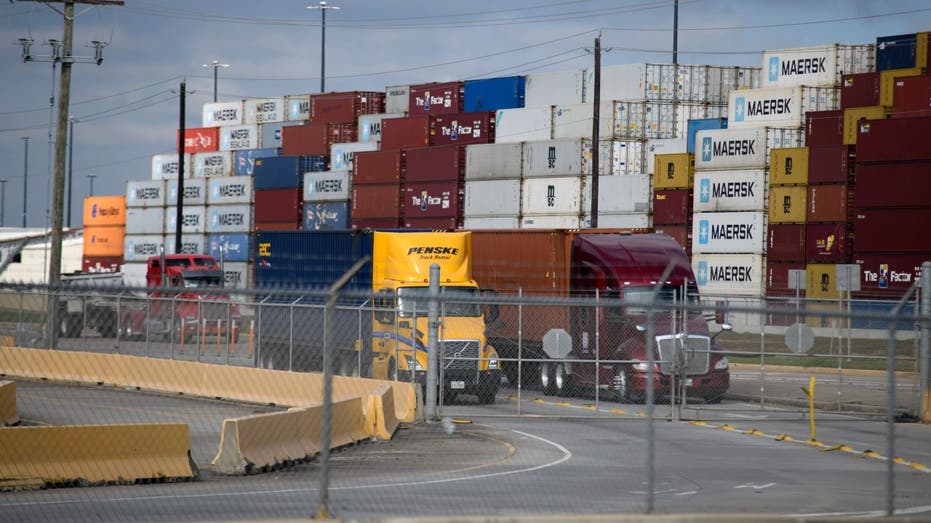President Donald Trump is expected to announce his tariff plan on Wednesday while his administration prepares to step in with relief for American companies that bear the brunt of likely retaliatory tariffs from foreign governments.
Trump is planning to reveal his tariff plans Wednesday afternoon as part of a “liberation day” event in the White House’s Rose Garden. Details surrounding those plans have been in flux over the last week, though they’re expected to include a reciprocal tariff plan that matches U.S. tariffs on imports to those faced by American exporters. A broad, flat tariff has also been floated.
Several countries have already signaled they intend to retaliate against U.S. tariffs, spurring fears of an escalating trade war as tit-for-tat tariff hikes take hold. Those retaliatory tariffs are likely to target certain industries, and based on the experience of trade disputes from Trump’s first-term tariff push, the administration may step in to provide aid to industries caught in the crossfire of the trade war.
During Trump’s first term, China targeted a number of U.S. sectors with retaliatory tariffs, with agriculture the most popular target. To help farmers deal with the loss of access to established markets overseas, the U.S. Department of Agriculture (USDA) disbursed two rounds of trade aid.
TRUMP IS ‘ALWAYS UP FOR A GOOD NEGOTIATION,’ WHITE HOUSE SAYS, AS APRIL 2 ‘LIBERATION DAY’ TARIFFS LOOM
The nonpartisan Congressional Research Service noted in a report at the time that the USDA’s Commodity Credit Corporation provided a combined $28 billion in trade aid for farmers, including $12 billion in 2018 and $16 billion in 2019. Compensation rates were determined based on affected commodities using 2017 production levels, while eligibility was based on applicants’ income levels and how much of that income was derived from farming, ranching or forestry-related activities.
Agriculture Secretary Brooke Rollins said in remarks to reporters at agricultural facilities in Iowa on Monday that the USDA is preparing to support the agriculture sector again if retaliatory tariffs target the industry, per a report by the Iowa Capital Dispatch.
“Hopefully our farmers and our ag community won’t be hurt by – at least in the short term – by these decisions,” Rollins said. “But if they are, the president’s commitment is the same today as it was five or six years ago. And we at USDA and our partners across Congress and in Washington will work around the clock to ensure that we have the programs in place to do what we did the last time with the [Commodity Credit Corporation], and we fully expect to do the same this time, but to be determined based on what happens in the next weeks and month.”
WALL STREET FIRMS SEE RECESSION RISK RISING OVER TARIFFS, TRADE WAR

Clark Packard, a research fellow at the Cato Institute’s Herbert A. Stiefel Center for Trade Policy Studies, told FOX Business that foreign countries’ retaliatory tariffs will likely focus once again on agricultural exports, given the industry is a politically important one for the president.
“I anticipate most of the retaliation, or a lot of the retaliation, will hit American farm goods for multiple reasons. We export a ton of agricultural products. We’re just really good and efficient at producing agricultural products, but it’s also a politically sensitive industry for the president,” Packard said.
“So, in some respects, these become games. The retaliation is very calculated. You saw Canada float the idea of ‘If we face tariffs, we’re going to hit Tesla with retaliatory tariffs’ precisely to drive sort of a political wedge between [billionaire Tesla CEO] Elon Musk and the president,” he said. “It just remains to be seen how countries will respond, but again, I do anticipate a lot of the retaliation will fall on agriculture.”
TEXAS WILL BE AMONG STATES HARDEST HIT IN TRADE WAR, EU AMBASSADOR WARNS
Packard added that the scale of any new trade relief for farmers or other impacted industries will likely depend “on the extent of foreign retaliation.”
Ryan Young, a senior economist at the Competitive Enterprise Institute, told FOX Business that the trade relief program during Trump’s first term didn’t broadly support other impacted sectors beyond agriculture but that the administration could find other ways to use legislation to offer support beyond trade assistance programs.
“I’m not aware of any aid given to other retaliatory tariff victims, such as Harley-Davidson, distilled spirits makers and other industries,” Young said. “Plenty of businesses got aid from Biden-era bills, like the CHIPS Act, Inflation Reduction Act, the infrastructure bill and other big spending bills, though most of that was not necessarily tariff-related. If Trump decides to give tariff-related aid to other industries, he may well claim it’s for something else in order to save face.”



